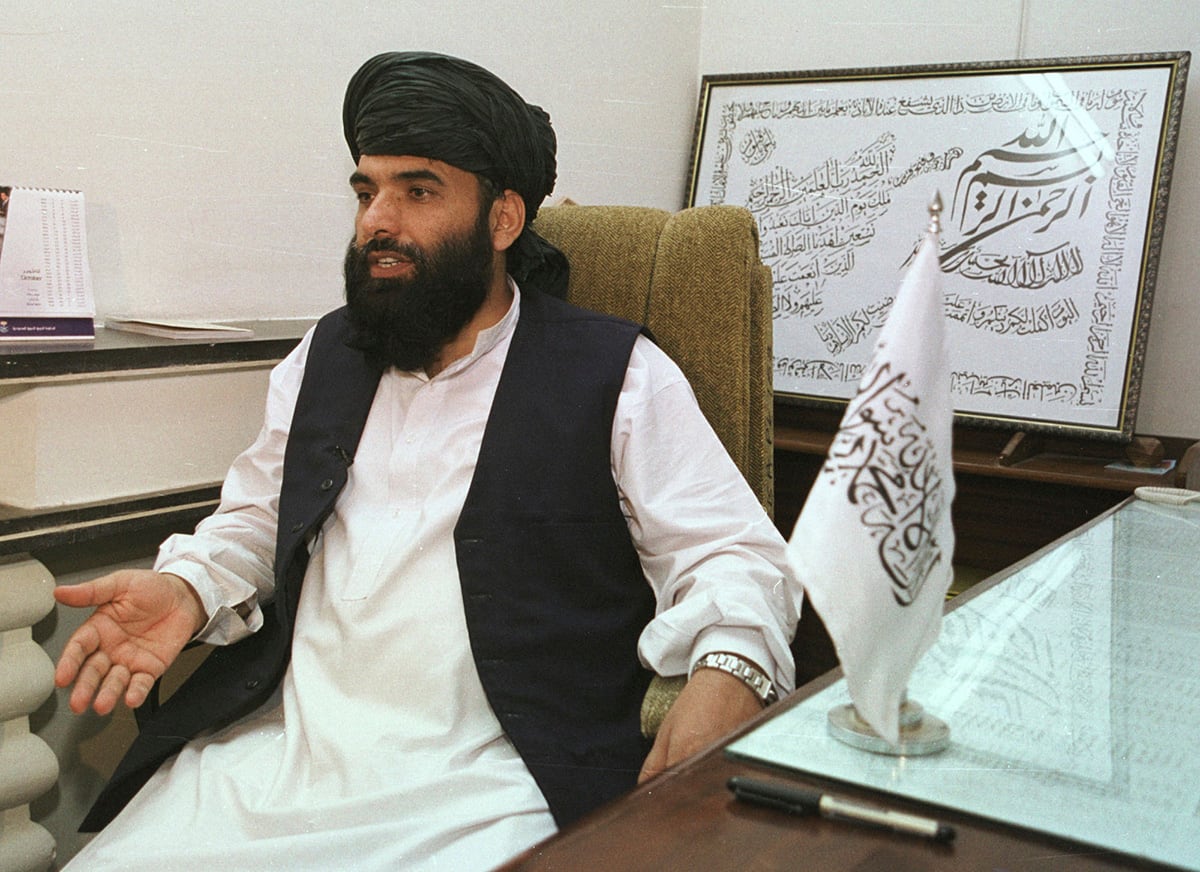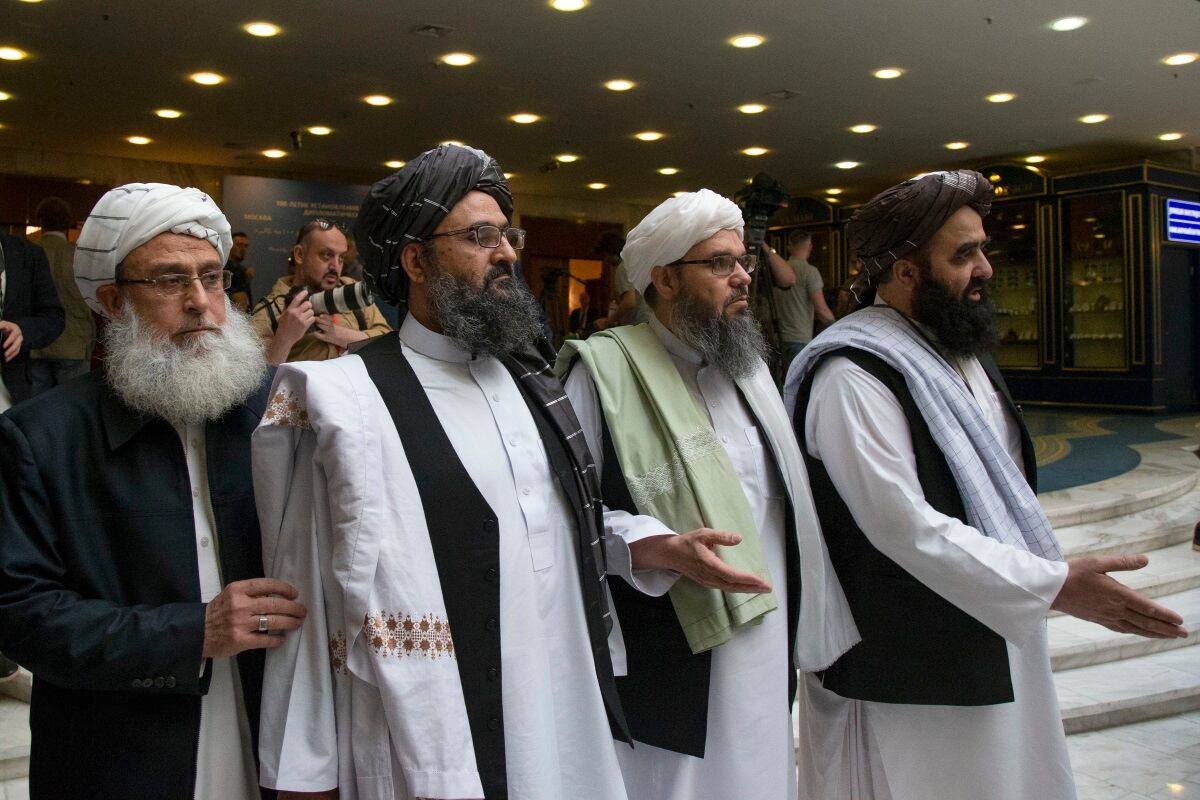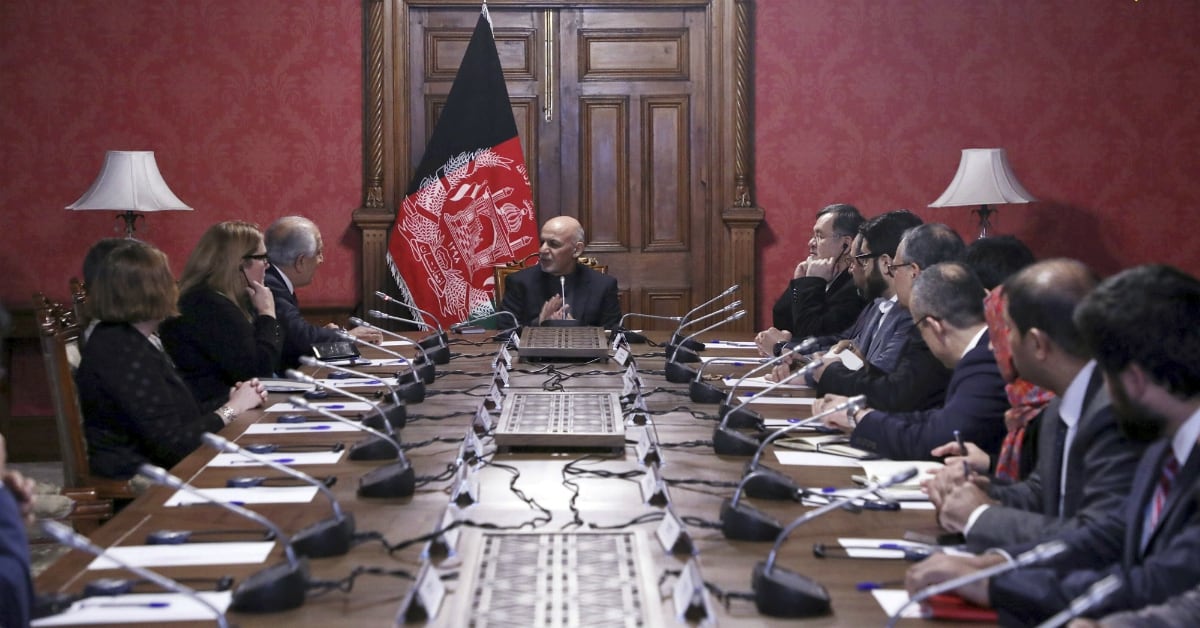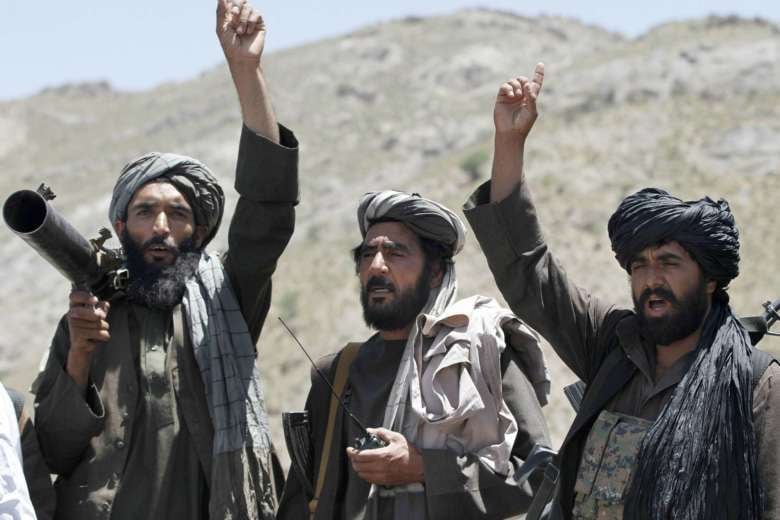ISLAMABAD — The Taliban said Sunday that the latest round of peace talks with the United States is “critical” as the two sides “rewrite” a draft agreement in which American forces would withdraw from Afghanistan in exchange for guarantees from the insurgents that they would fight terrorism.
“We are working to rewrite the draft agreement and incorporate in it clauses that have been agreed upon,” Taliban spokesman Suhail Shaheen told The Associated Press on the second day of talks with U.S. peace envoy Zalmay Khalilzad in Qatar, where the militant group maintains a political office.
He cautioned that while the work was continuing, it is “not finished yet.”
RELATED

The two sides are trying to hammer out agreements that would see the eventual withdrawal of over 20,000 U.S. and NATO troops from Afghanistan and the end of America’s longest-running war. The agreements are expected to include guarantees that Afghanistan will not harbor groups like al-Qaida, which was based there in the lead-up to the Sept. 11 attacks, and that the Taliban will continue fighting the Islamic State group, which has expanded its footprint in recent years.
The latest round of talks began on Saturday and is expected to continue into the next week.

The two sides sat down to negotiate just days after U.S. Secretary of State Mike Pompeo said Washington was hopeful of reaching a deal by Sept. 1 to end Afghanistan’s protracted war.
“Getting a comprehensive peace agreement with the Taliban before Sept. 1 would be nothing short of a miracle,” said Michael Kugelman, deputy director of the Asia Program at the U.S.-based Wilson Center.
“That said, I could certainly envision a more limited deal being in place by Sept. 1 on a U.S. troop withdrawal, given that there’s already been ample progress on this issue.”
Pompeo and Khalilzad have both said the final accord will include not only agreements with the Taliban on troop withdrawal and guarantees of a non-threatening Afghanistan, but also agreement on intra-Afghan dialogue and a permanent cease-fire.
RELATED

Until now the Taliban have refused direct talks with the Afghan government while holding two separate meetings with a wide array of prominent Afghans, including former president Hamid Karzai, members of the former northern alliance that fought the Taliban during its five-year rule and individual members of the government.
The Taliban view President Ashraf Ghani’s government as an American puppet but have said they will meet with members of his administration as individuals. The insurgents, who effectively control half the country, have refused a cease-fire until the U.S. withdrawal is complete.
The accelerated pace of negotiations and the sudden announcement of a Sept. 1 target date for an agreement could be linked to Ghani’s insistence on presidential polls scheduled for Sept. 28, analysts said.
RELATED

His political opponents have objected to the election schedule, pointing to last October’s poorly run parliamentary polls. The voting was so badly mismanaged that Ghani fired the entire Independent Election Commission. Several parliamentary seats are still being contested.
A biometric identification system aimed at reducing election fraud was prematurely rolled out for the polls, with the few people trained on the machines not showing up on election day. While there were incidents of violence, analysts widely agreed the greatest flaw was the widespread mismanagement and fraud.
Khalilzad has suggested that presidential elections could hinder peace efforts.
“I do think the U.S. government recognizes that the election could pose a major obstacle to peace talks, given that it will be a distraction and given that it will accentuate and intensify the fractures and rivalries in the Afghan political environment that undercut reconciliation prospects,” said Kugelman.
“Another reason for the focus on Sept. 1 is much simpler: President Trump wants out, and he wants a deal as soon as possible,” he added.




